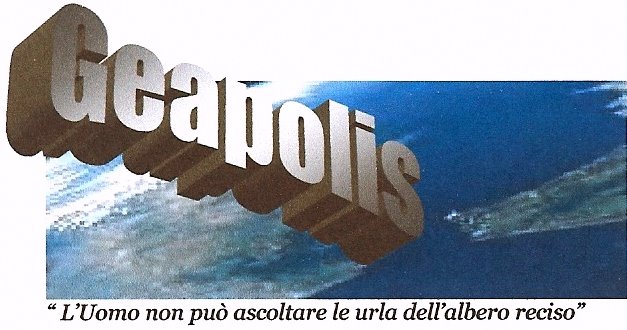International Herald Tribune
Have you heard of the EU?
By Lorenzo Fioramonti and Sonia Lucarelli
Tuesday, October 23, 2007
BOLOGNA, Italy:
The European Union is the world's biggest market and a trade giant. EU trade and investment flows with the rest of the world are unparalleled, while support for peacekeeping missions spans through several regions of the planet, from Africa to Asia and the Middle East. European Commission diplomatic delegations are present in over 120 countries.
So why is the EU so little known around the world?
Various opinion polls, including the official Eurobarometer, have long shown that the EU does not warm hearts among European citizens. We have conducted a series of studies on the EU's external image and have found that the EU's profile in the rest of the world is even more worrisome than within its boundaries.
In most Latin American countries, only a minority of citizens have ever heard of the EU, while in Africa the EU is among the least known international institutions, largely surpassed by the UN and technocratic institutions like the WTO and the World Bank.
In 2001, only 23 percent of Chinese knew of the existence of the EU. In India, the EU is conspicuously absent from mainstream media as well as public debate, in spite of being the country's main trade partner and one of its most significant counterparts with regard to scientific and technological cooperation.
This situation does not change significantly when moving to richer countries: In Australia, Canada and Japan, knowledge of the EU as a political entity is quite low, although most people know of the European culture and have opinions about individual European countries.
Limited international exposure is likely to have numerous explanations.
First of all, the EU is not a conventional global player in that it is not a state, nor is it an international institution such as the UN. Its various layers of governance include policy areas that are governed by communitarian institutions and others that are under exclusive control of member states. This is further aggravated by the fact that EU foreign policy, which is the main medium through which the EU projects its global image, is profoundly divided and falls under the competence of the various member states.
Such a fragmentation is not only evident in well-known issues such as the war in Iraq or the nuclear proliferation in Iran, it also affects softer policies such as trade and development, where each member state has its own parallel institutions, interests and strategies.
Additionally, the EU's cultural message leaves much to be desired. Unlike the U.S., which has closely connected its political role with an all-encompassing cultural production, the EU is never or seldom associated with a European way of life in the eyes of foreign observers.
All these factors point to an overall question: What world does the EU aim to build?
In this regard, the root causes of the EU's lack of global image are not only to be found in its institutional setup or lack of cultural production, but also - and, more importantly - in the fragmentation of its social and political message.
So far, the EU has failed to successfully communicate not only to the European public, but also to the citizens of other countries, what are its ultimate goals as a global player. On crucial issues such as human rights and democracy, market economy and social justice, the EU has often acted with uncertainty and ambivalence.
Of course the EU is a complex actor, way more complicated than a nation-state. Yet, instead of endorsing "complexity" as the key to addressing global challenges, the EU's action has often been permeated by hesitation and contradictions.
Devoid of a clear socio-political message for its citizens and the world, the EU has become increasingly embroiled with its gigantic bureaucracy, which by contrast is characterized by a technocratic and simple-minded approach to the world's problems.
This whole range of factors makes it very difficult for external observers to understand what the EU is doing and what its global strategy is. As a consequence, foreign citizens are unlikely to have read or heard about the EU in the press or on TV. Even when they do find some information, they struggle to form an opinion about this new global actor.
So the key question is whether the EU can develop a clear global strategy amid its complexity. All things being equal, the odds seem to be in favor of an affirmative answer.
Simplistic approaches to international problems have proven disastrous, as the Iraqi campaign has demonstrated. Unilateral strategies have also revealed their weaknesses, as is epitomized by the growing isolation of the United States in areas ranging from security, to trade and climate change.
These changes demonstrate that current world affairs need a new leadership able to manage complex situations in a multilateral and participatory fashion.
In theory, the EU seems to have the right ingredients to provide this leading role. Unfortunately, it has thus far been swallowed by its own fragmentation and indecisiveness.
Only a new leadership able to foster a political and social identity inspired by the European values of solidarity, multilateralism and cultural complexity will be able to communicate a different message to the world.
This will strengthen the EU's role in the world and its roots in the hearts and minds of European citizens.
Lorenzo Fioramonti and Sonia Lucarelli are researchers at the University of Bologna.
Notes:
ADVERTISER LINKS
Deep Democracy
International Conference: Conflict, Body-Mind, Coma, Mental Health,
www.iapop-conference2007.org Peacemaking 1919
Peacemaking 1919 (1971) Movie Reviews, Ratings, & Rankings
Movies.TopTenReviews.com
International Herald Tribune Copyright © 2007 The International Herald Tribune | www.iht.com











Nessun commento:
Posta un commento